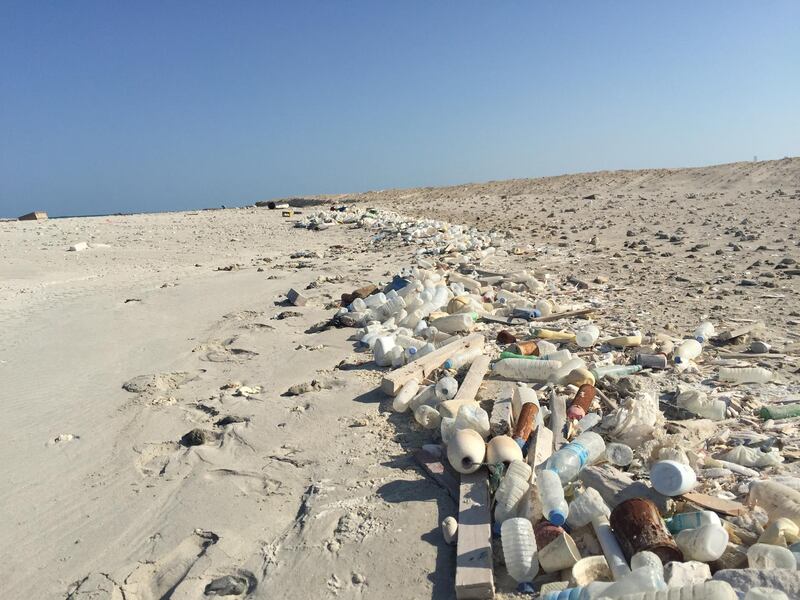Environmental leaders have pledged to step up efforts to tackle the scourge of plastic pollution.
At a high-level summit, convened by the UAE, regional officials, private sector chiefs and ambassadors agreed to confront the problem of plastic being recklessly dumped at sea. The meeting also delivered a pledge to promote cleaning-up 10 major river systems across Africa, Asia and the Middle East. These systems are believed to cause 90 per cent of the oceans' plastic problem.
The pledges were non-binding with more details expected in the next few months but millions of tonnes of plastic waste are being dumped at sea each year. The UN has warned marine life faces irreparable damage from the problem.
“With statistics indicating that there will be more plastic in the oceans than fish by 2050, the world must step up and commit to a more concrete action plan to generate solutions that can reverse these statistics,” said Dr Thani Al Zeyoudi, Minister of Climate Change and Environment. “We welcome this commitment as a first step towards cleaning the world’s most polluted rivers.”
Held on the sidelines of the World Ocean Summit, the meeting first addressed marine pollution in the UAE. Attendees from local bodies such as the Environment Agency-Abu Dhabi, plastics company Borouge, BP Middle East, Abu Dhabi Department of Economic Development, Abu Dhabi Ports and waste management agency Tadweer agreed to support federal efforts to remove plastics and discarded fishing gear from the seas, while also encouraging people to end the addiction to single-use plastics.
A second session, attended by representatives from oil companies, the UN and officials from Egypt, Sudan, Norway, Kenya and Ethiopia, examined ways to stop pollution in the river systems across Africa, Asia and the Middle East. Eight of these systems are in Asia, such as the Yangtze, Ganges and Mekong, while two are in Africa — the Nile and the Niger.
“This issue of river pollution affecting our oceans has been of high concern to us as Sudan is one of the countries that belongs to the Nile river basin,” said Mohamed El Kari, Sudanese ambassador to the UAE. “This round-table was an excellent opportunity to … provide ideas to tackle this alarming issue.”
The World Ocean Summit — a three-day conference that addressed the threats facing the world's oceans — concluded on Thursday. The UAE launched a number of initiatives during the event such as Wednesday's landmark move to help restore the country's depleted fish stocks. New legislation, tougher enforcement and tighter scrutiny of the commercial, recreational and spearfishing communities all come under the scope of the 12-year plan.







